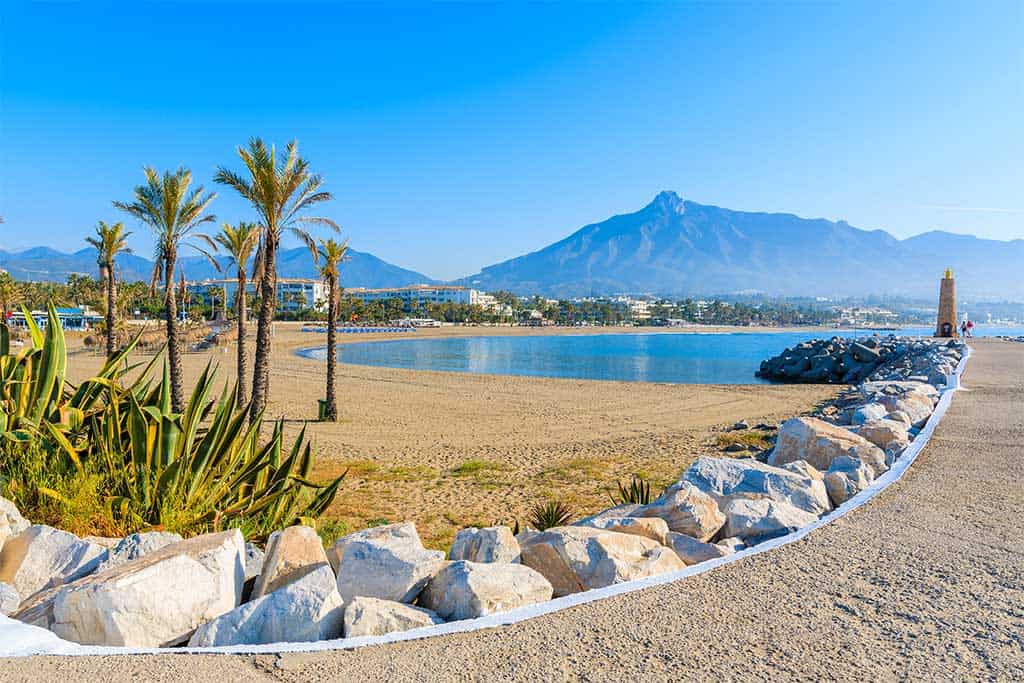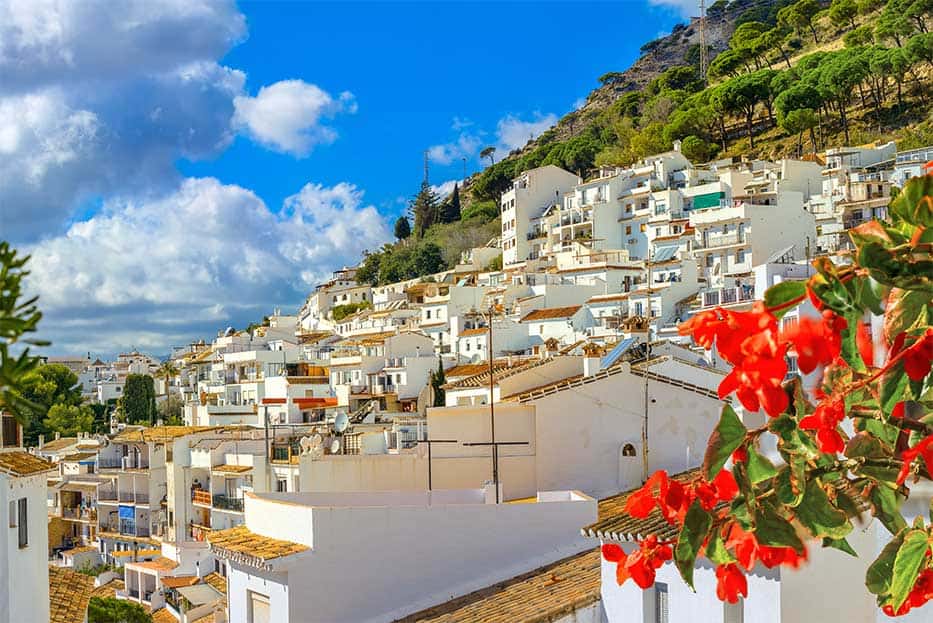This is our 30th Market Report. It is a Special Report as it is largely about the uncertain time we all find ourselves in, and how it’s going to affect our culture and social understanding, plus our business and personal economies. The doubts are all around, but how are we, personally, going to respond to them, and are they real or just something that’s happening to others, and we’ll carry on in our ‘bubble’.
The Special Report has been prepared to answer the questions everyone is asking now, and because I wanted to know for the future business of Survey Spain and my own life.
It will be added to the hundreds of other articles and information pieces that can be seen at Survey Spain.
Is the Ukraine War and Inflation affecting the Costa Property Market?
3,600 kms separate the ‘tranquillity’ of Costa del Sol from the horrors of Ukraine. However, the effects of the war have become the ‘trigger’ for the release of the inflation and shortages that have been building up since the financial crisis in 2007/8. ‘Quantitative easing’ is a euphemism for ‘watering down’ of currencies and that’s been going on at various levels for 14 years. Combined with the trade disruptions caused by Covid, and the fuel, wheat and other shortages caused by the war, the effects can’t be hidden any more, as countries and people find that they are not going to get so much for their Euro, Pound, Krone, Dollar, Yuan, and definitely not Rouble. Inflation is traditionally slowed by wage and price controls, with the latter already being put into effect in Spain regarding motor fuel and restrictions on rent increases. It’s also controlled by reducing the amount of money available, by increasing interest rates. So, with cash money having less value, people are keener to use it to buy things that will keep their value, such as property.
So, the property negatives are increased interest rates making mortgages more expensive, and people having to spend more of their income and savings on general living costs. The positives are that property is looked upon as a safe haven in times of inflation, the Costas being about as far as one can get in Europe from the war, general dissatisfaction with the increasing troubles of life in northern countries, and ‘free’ energy from the sun being readily available here.

Over the last few days, I’ve asked many professionals if they are finding any evidence of changes in the local market. Overall, the answer has been, “Not yet”. There’s greater uncertainty about the future, both in the professional’s businesses and from their clients. With some, there is an urgency to buy just to get the security of having a ‘fixed’ asset before anything happens. Agents have rarely been so busy with deals being concluded and the difficulty of finding properties for their clients to buy. With others, there is greater caution and a wish to hold onto what they’ve got. One lawyer even said that two clients had pulled out of deals within the last few days, losing their 10% deposits.
The logic is that there should be a lessening of demand from those just looking for a holiday home, as there will be less money around, and for the Brits, as they experience the full negative effects of Brexit. Russians, too, will be absent. However, that reduction is being covered and more by buyers anxious to place their funds in a real asset, far away from the current conflict. The Costas have already seen a significant increase in buyers from Germany, and Romania has always been high on the list of buying countries.
The EU has also started tightening up on the granting of investment backed visa’s, which again is likely to cause a rush of applications. ‘Golden Visas’ are most often granted to families investing more that 500,000€ euro in property, but can also be bought by direct investments in Spanish companies or even Spanish Government Bonds. Being of a higher value, with many cash buyers, the increase of mortgage interest rates is unlikely to have a significant effect. However, lower value property purchases are more often linked to mortgages, and that market may stutter as buyers find it harder to find a mortgage or shy away from them in case the interest rates rise substantially. Fixed rate mortgages are becoming hard to find. We tend to forget that higher interest rates have been the norm, with them being as high as 17% in the UK in 1979, when inflation averaged 13%, but went as high as 17.5%. Fortunately, and hopefully, we are a long way away from those levels.
Overall, backed by the comments of many professionals, I am of the opinion that the demand for property from those with money will continue, therefore encouraging the upper price sector of the market. However, buyers, agents and other professionals will be ‘looking over their shoulders’ with unease, but not too aware of what it is they fear.

And don’t forget, the Climate Crisis, which is out there and will increasingly affect us. Possibly, a significant cause of the troubles we have now, it is progressing whether we take action or not.
Climate Crisis
Nature has performed Carbon Capture for eons,
safely burying surplus carbon as oil and gas.
But we have released all that in a few decades.
Nuclear is going to do the same in a shorter time,
with radioactive waste being like CO2,
and having to be buried, as oil and gas was.
The assets of the world are finite,
but we have been profligate in their use and not recycled.
Now we live with the consequences of these actions.
All of us have no choice,
but to reduce our own ‘carbon footprint’
by changing to the new reality lifestyle today,
and not wait until tomorrow.
Nature doesn’t respect Mañana.
Campbell D Ferguson
PROFESSIONALS’ OPINION OF THE MARKET
- Britons face a historic shock to their incomes this year, sparked by soaring energy prices that will hit growth and consumer demand.
- The cost of living crunch will be bigger than in the 1970s. Stagflation will occur, which is slow economic growth and soaring inflation.
- Energy prices will use up the household savings that have risen due to lack of spending during Covid.
- War will push up inflation, worsening an already existing crisis.
- The US is not so badly hit, as it has its own energy. It means the dollar will be stronger and therefore there will be more buyers from there. However, they are nervous of coming into a war-torn, inflation hit Europe.
- There will be some benefits as we rebound from Covid with fewer travel restrictions.
- There has been a huge number of inquiries from Ukrainians. They are looking for properties already developed and are prepared to pay the prices asked.
- People can fall in love with a property, such as a client who bought a property for 1.8 million eight years ago, and has just sold it at 1.4 million.
- Northern Europeans tend to think of property as an investment, and there are lots of Swedish buyers, whilst the Spanish tend to think of property as “a place to store stuff”.
 ……………………………………….
……………………………………….- His work is benefitting from decisions made 6 to 12 months ago.
- The impression given is that there is not much change in sales, and they are progressing strongly.
- His concern is that things are being put on hold. Developers are not signing contracts because they don’t know what’s going to happen with costs and prices tomorrow.
- Construction is also having its problems with supply, as sites were closed because of the delivery strikes, and also because of lack of materials from suppliers with the product just not being there.
- There’s a nervousness with material prices going through the roof.
- Some are projecting a 25% increase in costs, which is very much inflationary and cannot be carried by any business, which must pass it on.
- Uncertainty in the stock market and war is making people look at property.
- It’s not affected prices, as it’s too early to say.
- Mortgage valuations are tending to be too low, as banks become more cautious.
- Two clients have recently lost their 10% deposits because they pulled out of purchases, with the real reasons being unknown, but it’s a very unusual occurrence.
- Estate agents are selling properties well, but the prices are not really increasing.
- Materials are putting a hold on development, such as a lack of steel and glass.
- Their golden visa department has been extremely busy, with people from many countries outside the EU.
- The war and inflation don’t appear to be having an effect yet, but it will happen.
- There’s a high demand for rentals of property from Ukrainians.
- Many can’t purchase now because of the war restricting their access to funds.
- Interest rates are going to affect the market.
- Exchange rates already have, with the Swedish kroner having dropped significantly against the euro, and the domestic property market in Denmark being largely frozen.
- Property is looked upon as a bolt hole for money.
- Trying to get to strong idea of what is happening is like trying to “put your thumb on jelly”.
- Insurance companies have not started to react, although they are jittery with Russian sounding names. Especially for the yacht market!
- Some international banks may be having problems, with Credit Suisse and UBS reported to be in difficulties regarding loan repayments.
- Locally, agents have noticed a slight slowdown in the number of transactions.
- Future effect is an over-heated market, which has become a sellers’ market.
- Uncertainty, inflation and war are beginning to cause people to put off big decisions.
- Developers report that sales are going well.
- There’s 15% inflation in construction, and no fixed price contracts are being signed.
- I think here the weather has had more effect on the market than anything else!
- Obviously, the Marbella market will be affected by the war situation, but here in cloudy Mojácar, the market is holding up and looking forward to a promising spring.
- More international flights are now arriving at Almeria airport and all the agents report a continuing interest in international purchase.
- The continuing inflation will cause new properties to rise in value and that is bound to reflect on the second-hand market.
- A local estate agent reports having sold a beachside villa in the region of 1.3 million, with the buyers retreating to a front line penthouse for 365.000!
- So, no bad news at the moment, but with the worldwide situation being very fluid, anything could happen!
- What with Covid, Volcano, Brexit, Strikes and War, and the worst winter that I can remember in 35 years living here, just watch this space!
- Inflation. – Clearly it is rising and much higher than official figures. As a result, Europe will follow the US and we will see an interest rate rise – hopefully it will not go higher than 3%. I suspect pushing it up over the next few years will suffocate inflation (if they act soon) and the high interest rates will be temporary. Historically, as you know, this is nothing compared to the 1970s and 1980s.
- It is essential to not let inflation become engrained, and therefore vital to raise the bank rates hard and early. Thank goodness rates are extremely low, so there is some margin to play with. If this is not done now, we will enter into a spiral of ever-increasing wages and costs. I am not convinced the EU will do this as they are terrified it will affect German businesses and quash demand. It will be sour medicine indeed, but a necessary cure.
- With regards to Balearic property, it will clearly affect those who have large mortgages in relation to income. Sadly, my feeling is that the working classes will be hit most.
- War. – At the moment, I would say we will have enduring and increased oil prices, and therefore flights will be more expensive making second homes abroad less attractive.
- Restrictions – The Balearics is leading the way in discouraging people to buy a property as an investment. https://www.msn.com/en-us/news/world/the-balearic-government-to-study-how-to-limit-the-purchase-of-property-by-foreigners/ar-AAVzaGX Even with my simple grasp of European law, you are not allowed to discriminate against another European, so this proposal could only be applied to non-Europeans. That means UK, USA, etc. – a tiny percentage of properties.
- My view is that a second home in Spain might be taxed heavily to free up properties, but apply it to everyone, including Spaniards.
 ……………………………………….
……………………………………….- The Russian market has been increasing constantly during the last 10 years in the Costa Blanca, Valencia city and the province of Castellón. The largest Russian orthodox church in Spain is placed at the entrance of a high luxury urbanization in Altea, Alicante. The market related to the golden visa for Russian citizens presumably will be highly damaged.
- But so will medium investors looking to buy a second residence, not necessarily in top luxury environments. Especially those depending upon income from rentals or benefits from their home country.
- The inflation, energy costs and turbulence are directly influencing the dynamic of the economy, but not yet real estate market prices.
- New buildings and refurbishments are more and more related to higher investment in improving energy efficiency. Accordingly, market prices will be influenced by it as well.
- Restrictions in the rental market should be supported by the legality and not just by political interests. The current scenario creates uncertainty damaging the market by a lack of stock.
- I’m usually short on time, maybe I want to cover too much.
- It’s reached the point where I’m not even reading the professional information sent to me by my architectural association, lawyers or a couple of websites I’m signed up to.
- I’m just trying to get the job done.
- I am carrying out the technical and economic control of five works with 15 different trades and contracts, that together with Covid, the lorry strike, inflation and sometimes the incompetence of certain people in the execution of works, have me upside down and make me spend a lot of time out of the office.
- And add to this the topographical surveys, energy and age certificates that tend to arise …
- Lately, I am discarding collaboration issues as well as seeking work that I cannot take to my technical architect.
- These are the circumstances, fortunately. It usually lasts a few months and then falls and rises again.
- The two small construction companies I work with (five and six workers) can’t take new work until July.
- With various subcontractors, when we close a deal with the work for weeks from now, some of them give me quotations with a validity of “7 days”, because the factories will not guarantee their prices.
- My clients are paying between 50% and 70% of the budget as a provision of funds to close the offers (inflation issue) and there is NO guaranteed delivery date for materials from the subcontractors and factories.
- This is why I have a chaos doing controls and trying to have a timescale for jobs. It takes me a lot of time to organize, and reorganize again and again. A lot of issues are out of control.
- The law firms with which I collaborate and which deal, among other things, with foreigners buying and selling, are also very busy.
- In my opinion, and I speak for this area of the Spanish Levante, it is because it is cheap to live here in comparison even with other areas of Spain, and because of the security issue. This is not the Maghreb with its political instability and insecurity. Foreign investors stay on this side of the “puddle of water” (Mediterranean sea).
- The Russian market was not as large as I had imagined.
- An estate agent I know is still rushed off her feet, and still struggling to pick up quality inventory, therefore selling other agents’ stock.
- I don’t really agree with rent controls, but it’s easy to say when I own, and my friends are having their rents doubled from 1,300 to 2,600 because everybody wants to move into the area.
- Imagine what the figures are like in Madrid or Barcelona. You have a kid in these places, you know they are staying with you or moving out the city. High rents and Airbnb are destroying families in cities.
- Barcelona and the national government have seen their grand control plans quashed by the central Courts.
- However, a 2% cap on increases may be on its way.
- It’s worth noting that internationally, while rent controls have been found to have some beneficial effects, they have had serious negative consequences.
- Introduced in Germany in 2015, they have been found to have no persistent effect on rental prices, but resulted in a reduction in housing quality.




